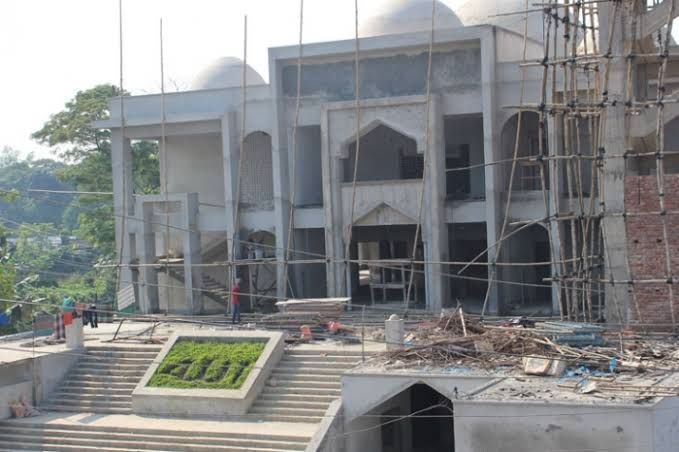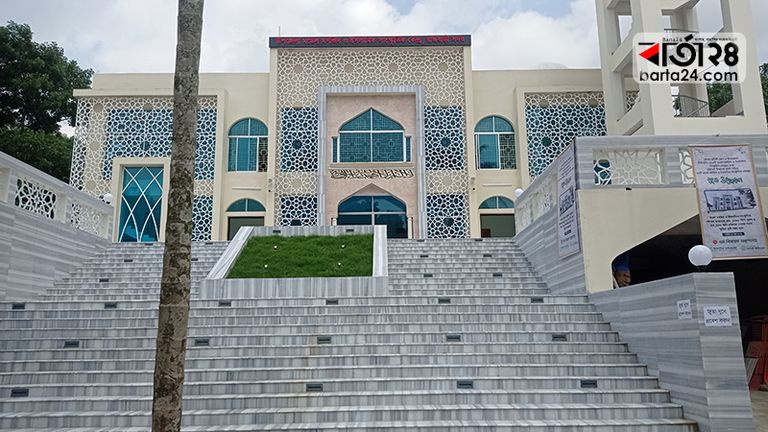
Bismillahir Rahmanir Raheem.
Assalamu Alaikum Wa Rahmatullahi Wa Barakatuhu.
Dear fellow friends, I hope you are all well, I am also well and healthy by the grace of Allah through your prayers. Welcome and congratulations to all of you in today's post.
Building a mosque holds significant importance in Islam, regarded as a highly meritorious and virtuous act. The Quran and Hadith, primary sources of Islamic teachings, emphasize the spiritual, communal, and social benefits of constructing mosques. This discussion will delve into the significance of building mosques, drawing upon the Quran and Hadith to provide a comprehensive understanding.
Importance of Mosques in Islam
Mosques, known as "masjids" in Arabic, are places of worship where Muslims gather for prayers, spiritual growth, and community activities. The word "masjid" derives from the Arabic root "sajada," meaning to prostrate, highlighting the mosque's role as a place for worship and submission to Allah.
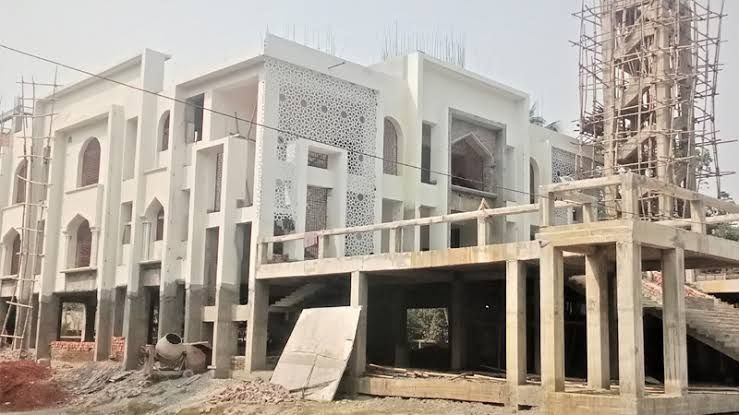
source
Quranic References
The Quran underscores the importance of mosques and their role in fostering piety and community. One of the key verses is:
"The mosques of Allah shall be visited and maintained by such as believe in Allah and the Last Day, establish regular prayers, and practice regular charity, and fear none (at all) except Allah" (Quran 9:18).
This verse highlights that maintaining and frequenting mosques is a sign of true faith and devotion. It emphasizes the mosque's role as a center for regular prayer, charity, and reverence for Allah.
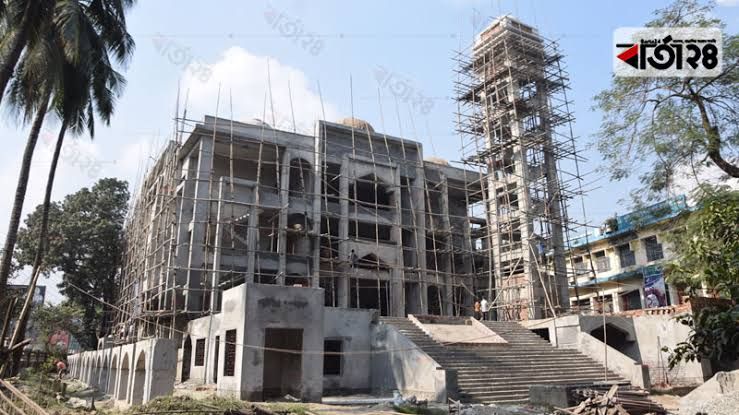
source
Another significant verse is:
"And [mention] when We made the House (Kaaba) a place of return for the people and [a place of] security. And take, [O believers], from the standing place of Abraham a place of prayer. And We charged Abraham and Ishmael, [saying], 'Purify My House for those who perform Tawaf and those who are staying [there] for worship and those who bow and prostrate [in prayer]'" (Quran 2:125).
This verse refers to the Kaaba, the first house of worship on Earth, and highlights the importance of purifying and maintaining places of worship for various forms of devotion. This directive extends to all mosques, emphasizing their sanctity and the need for maintaining their purity and functionality.
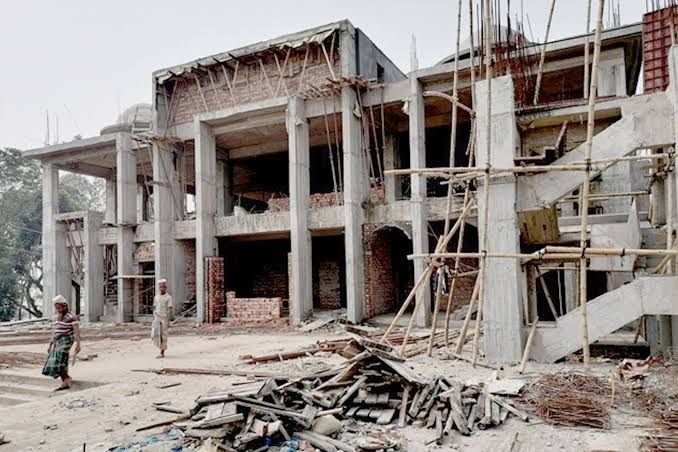
source
Prophetic Traditions (Hadith)
The Hadith literature, which records the sayings and actions of the Prophet Muhammad (peace be upon him), further elaborates on the virtues of building and maintaining mosques. A well-known hadith states:
"Whoever builds a mosque for Allah, Allah will build for him a house like it in Paradise" (Sahih al-Bukhari and Sahih Muslim).
This hadith clearly shows the immense spiritual reward for constructing a mosque. The promise of a house in Paradise signifies the eternal benefit and honor granted to those who contribute to such a noble cause.
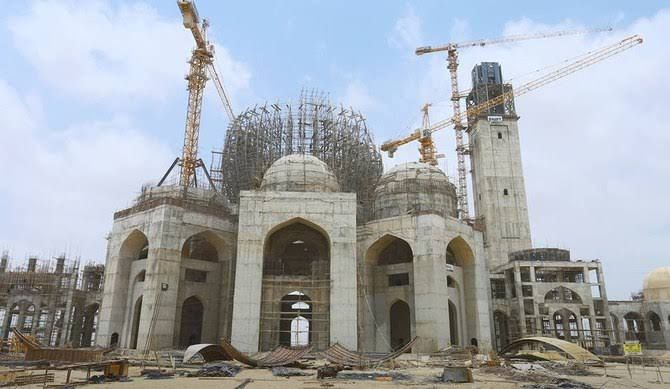
source
Another relevant hadith is:
"The most beloved places to Allah are the mosques, and the most hated places to Allah are the markets" (Sahih Muslim).
This narration highlights the special status of mosques in Islam. They are the most beloved places to Allah because they serve as hubs of spiritual activity, community building, and guidance.
Spiritual and Community Benefits
Building a mosque brings numerous spiritual and communal benefits. Spiritually, mosques provide a dedicated space for Muslims to perform their daily prayers, recite the Quran, and engage in various forms of worship. This consistent engagement with worship nurtures one's relationship with Allah, fostering spiritual growth and piety.
Communally, mosques serve as centers for education, social welfare, and unity. They often host religious classes, lectures, and discussions, enhancing the community's knowledge and understanding of Islam. Mosques also act as places for social gatherings, where Muslims can meet, socialize, and support one another, thereby strengthening community bonds.
Furthermore, mosques frequently engage in charitable activities, providing assistance to those in need. This role aligns with the Quranic injunction to practice regular charity, as mentioned in Quran 9:18. By serving as hubs of charitable work, mosques contribute to the well-being of the entire community, fostering a sense of solidarity and mutual support.
Historical Significance
Historically, the mosque has always been central to the Muslim community. The Prophet Muhammad (peace be upon him) established the first mosque in Madinah, known as Masjid Quba, upon his arrival in the city. This act set a precedent for the importance of having a communal place of worship and gathering.
The Prophet’s Mosque, Masjid an-Nabawi, built shortly after Masjid Quba, became the nucleus of the early Muslim community, serving as a place for prayer, administration, and social activities. This tradition of constructing mosques continued throughout Islamic history, with mosques often being the first buildings established in new Muslim settlements.
Modern Context and Challenges
In the modern context, building mosques continues to be a highly regarded act, but it also comes with challenges. Urbanization, economic constraints, and legal issues can pose obstacles to constructing new mosques. However, the continued dedication to building and maintaining mosques reflects the enduring commitment of the Muslim community to uphold their spiritual and communal values.
source
Building a mosque is a profoundly rewarding act in Islam, deeply rooted in the teachings of the Quran and Hadith. It serves as a testament to one’s faith, a means to attain spiritual rewards, and a vital component of community building. The Quran emphasizes the role of mosques as centers of prayer, charity, and piety, while the Hadith promises immense rewards for those who contribute to their construction and upkeep.
Mosques play a crucial role in nurturing spiritual growth, fostering community bonds, and providing social welfare. Historically and in contemporary times, they have remained central to Muslim life, reflecting the enduring importance of these sacred spaces. Despite modern challenges, the commitment to building and maintaining mosques continues to exemplify the dedication of Muslims to their faith and community.
